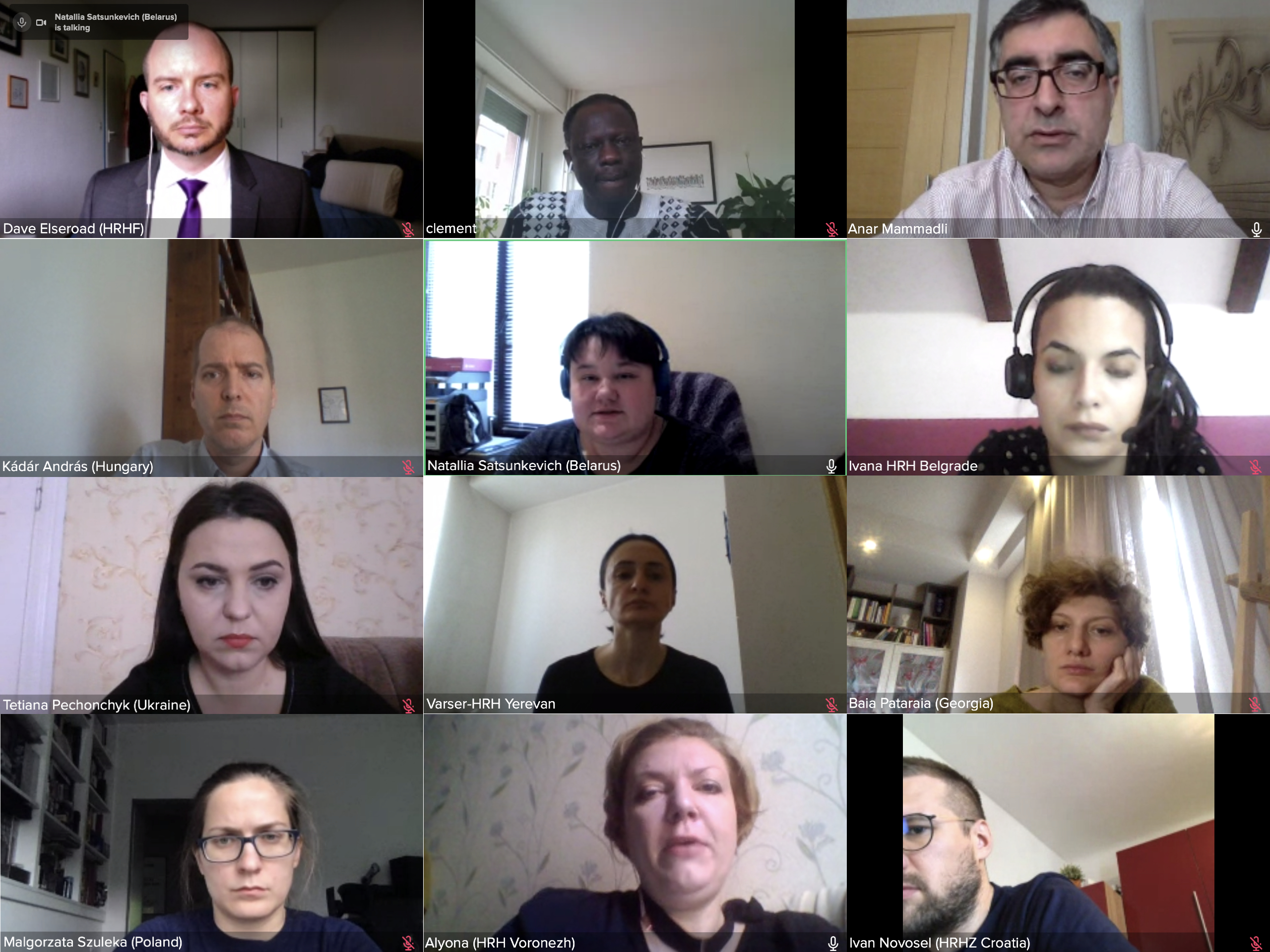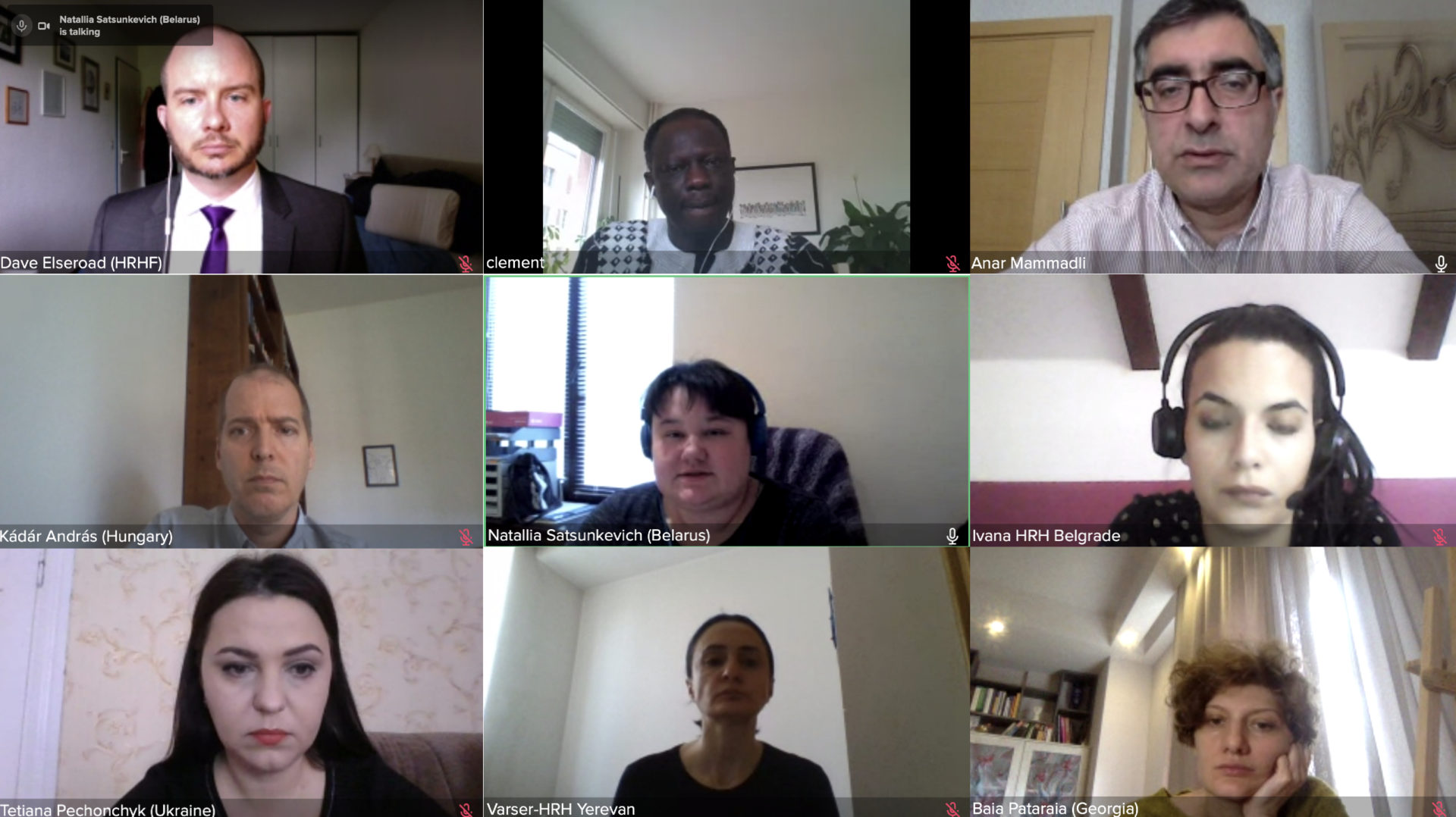“Governments have scrambled to address the pandemic. But, in doing so, governments have limited freedom of association and assembly in ways that would have seemed unimaginable only a few months ago,”
Dave Elseroad, Head of Advocacy, HRHF
Curbing freedoms without time limitations or checks and balances

The consultation focused on the responses of states to Covid-19 in ten countries, including nine that have Human Rights Houses. As well as identifying country-specific issues, the discussions highlighted some key trends that can be seen across the region.
Mandatory social distancing, limits on public gatherings and freedom of movement have been imposed in many countries without consultation with civil society. The negative effects of these policies are becoming more apparent, particularly in “ill democracies”.
Participants of the call raised issues including the lack of adequate consultation and engagement by governments with their civil societies as they have introduced emergency legislation and limited rights; the further centralisation of power in the hands of the executive branches of governments, in many cases without time limitations or proper checks and balances; and the many question marks around those countries that are due to hold significant elections in the coming months.
Recommendations to the Special Rapporteur
As well as identifying challenges, the consultation also sought to address the issues that had been identified. Many on the call felt that the current situation allowed for more dynamic work between UN human rights mechanisms, civil society, and state authorities.
A number of recommendations were made to the Special Rapporteur, including exploring “online” country visits in the absence of official visits until international travel is possible again. Some participants highlighted that this would have the added benefit of reaching civil society activists and human rights defenders in locations and territories ordinarily inaccessible to UN mandate holders.
There were also requests to the Special Rapporteur to continue to make clear statements identifying where states were using the Covid-19 crisis as a pretext to clearly and grossly contravene their human rights obligations. And to assist in identifying further standards to the setting and holding of elections during the current crisis.
The Special Rapporteur has been a vocal proponent of a human rights-centred approach to address Covid-19. Upon his recent publication of ten key principles for state authorities during this time, Voule stated that “no country or government can solve the crisis alone; civil society organisations should be seen as strategic partners in the fight against the pandemic.”
UN special procedures continue their important work in independently monitoring human rights around the world during the coronavirus pandemic. HRHF looks forward to supporting them in engaging directly with human rights defenders and taking advantage of the communications channels available to them.





